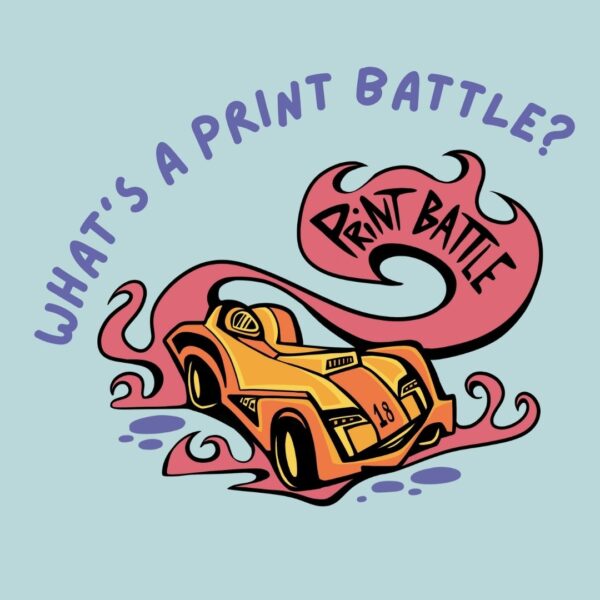Oh, Detroit. Has it been two years already?! It seems but a day since I took my first Michigan left and brought my Subaru to a stop in the center of your simultaneously horrifying and humbling splendor. From those early moments, I knew our relationship would be as tenuous as your gloriously rusted patina. I came equipped with my New York Times-fueled expectations and, to my 21st century grand narrative, you countered with the arresting reality of day-to-day life in an urban center lacking in infrastructure, population, and amenities. From you, I experienced the creativity that emerges from near lawlessness; I witnessed the ingenuity required to survive and, indeed, thrive in urban wilderness; and I was charmed by the entrepreneurial spirit that nurtured makers, doers, and hackers alongside BYO basement strip clubs and speakeasy-style soul food joints. What resonates with me still is the unwavering commitment to a locality where life is a unique brand of struggle but, even so, there is palpable energy created around cumulative gestures of grassroots transformation. Detroit is a truly contemporary American city—engaged with the potential of the present—sending up smoke signals to the future while building on the recently razed past.
So Detroit, it’s been real, but a working girl has got to eat, (specifically, she’s got to eat fresh produce other than the lemons and limes purchased at liquor stores), so this B@S blogger is moving on!
In September, I accepted a position in Portland and, beginning next Wednesday, I will be continuing my correspondence from the Pacific Northwest’s veritable hipster haven notorious for crafting, composting, and pre-retirement. Despite its bicycle riding, NPR listening, backyard chicken tending demographic, not all of Portland is steeped in cliché. Surprisingly, this city holds remarkable likeness to the Dirty D. There are hardcore, ambidextrous makers here—creative entrepreneurs who have eschewed the traditional a-list urban locale to continue canning, woodworking, and weaving from the comfort of a spacious home studio. A spirit of resourcefulness and resilience abounds. Like Detroit, the stability of full-time employment is hard to come by, but within this piece-meal existence, comes a freedom that facilitates forging alternative ways of living, working, and remaining creatively and culturally fulfilled. Portland’s got some hustle too, B@S!
Thanks largely to Fred Armisen and Carrie Brownstein, Portland has become the subject of popular myth and, I’ll admit, there is something about this city beyond the grunge and facial hair that begs the question: “Do you remember the 90s?†From what I’ve seen so far, much of the cultural work produced in Portland does bear the vague glimmer of an outstretched Clinton-thumb. Far from the 90s articulated by Jeff Koons and new genre public art, the Portlandia version is defined by expressions of optimism and imagination that often leverage the space of art and exhibitions as sites to launch fantastical alternatives.
Consider the work of Wayne Bund, Portland-based photographer recently featured at Cock Gallery, whose riveting portraiture explores sexual identity through the incarnation of fantasy—a veritable feast of cinematic unconscious that is as compelling as it is uncanny.
On view at the Henry Gallery is Like a Valentine, a solo-exhibition of Seattle-based ceramist Jeffry Mitchell, that features an other world of playful flora and fauna whose irresistible sweetness is perforated by gilded glory holes.
And just last weekend, I had the opportunity to experience an installation by Patrick Rock, visual artist and director of rocksbox, whose practice in studio and art space is notorious for combining blithe humor with biting art world irreverence. Â Requiem combined a room-scale bouncy playground with light effects, Mozart, and Dumbo, in a space resembling a church-y community center that would be hosting a pancake breakfast the next morning. The experience was cacophonous and disorienting… But I liked it.
Conversations with these three folks forthcoming, but first, an interview with MK Guth, an artist whose multifaceted practice includes sculpture, performance, image making, and Fluxus-style game playing. Not to reveal too much, but our conversation explored the logistics of participatory art: engaging various publics, embracing the unknown, and looping the experience back by transforming a collective process into a compelling art object. Stay tuned: MK Guth, next Wednesday 12/19, B@S blog!
- Little Ghosts of Alchemy and Magic: A Conversation with Emily Nachison - January 21, 2015
- Working on Non-Work: A Conversation with Anna Gray and Ryan Wilson Paulsen - November 27, 2013
- A Conversation with the Matt Glass and Jordan Wayne Long, the Creators of Half Cut Tea - October 16, 2013










